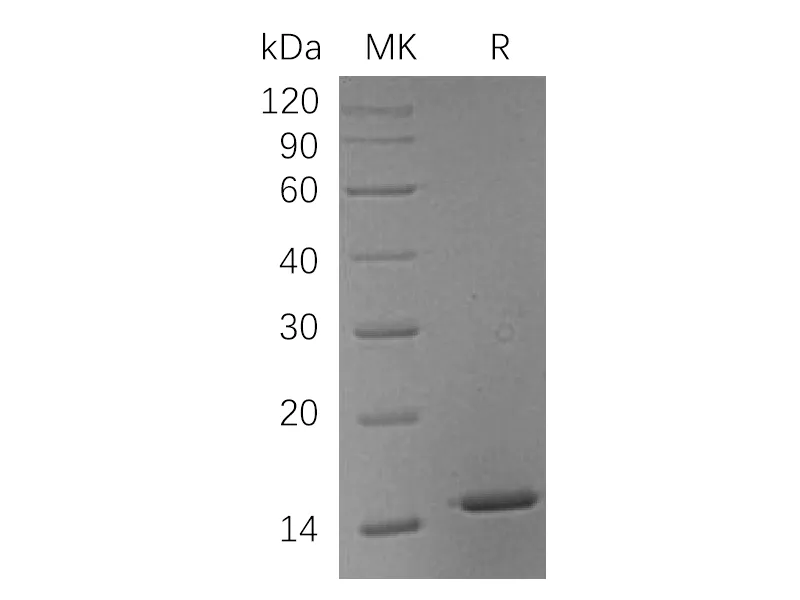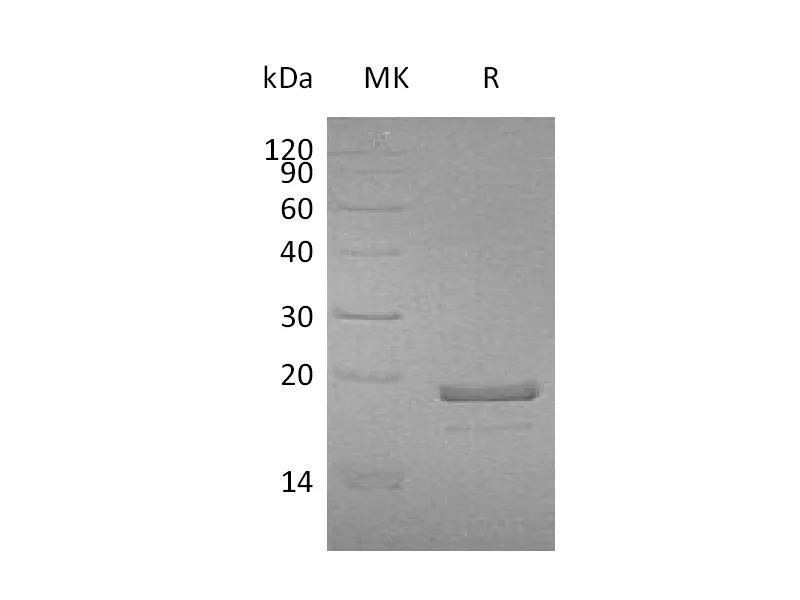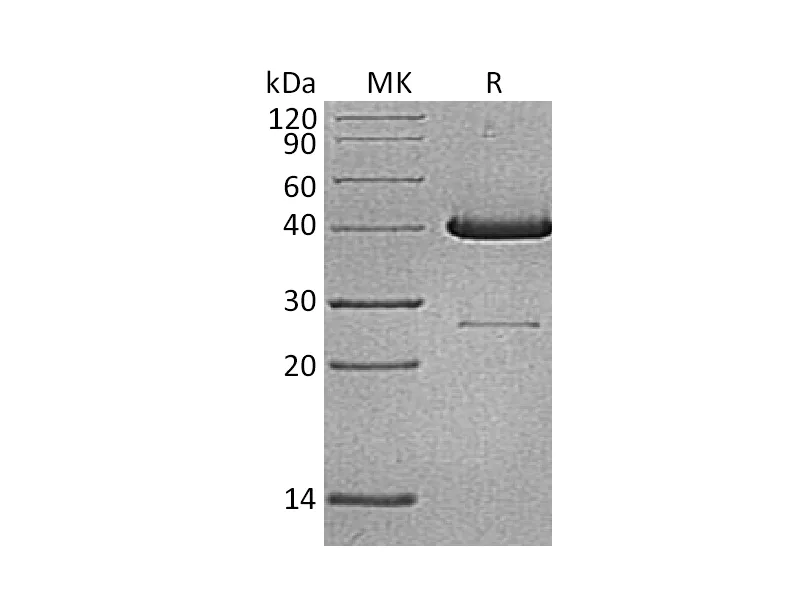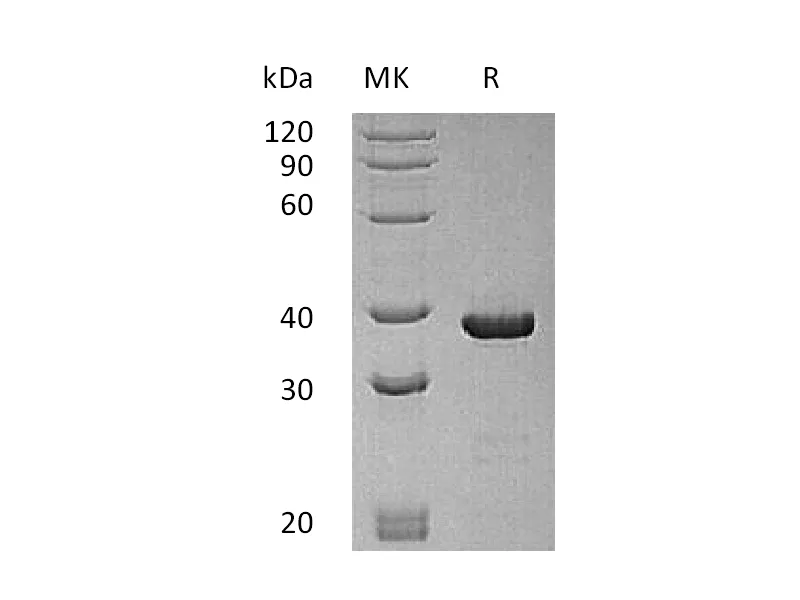| 产品名称 |
Recombinant Human GALNT3 (C-6His) |
| 英文名称 |
GALNT3/Polypeptide GalNAc transferase 3 |
| 纯度 |
Greater than 95% as determined by reducing SDS-PAGE |
| 内毒素 |
<1 EU/µg as determined by LAL test. |
| 蛋白构建 |
Recombinant Human Polypeptide N-acetylgalactosaminyltransferase 3 is produced by our Mammalian expression system and the target gene encoding Gln38-Asp633 is expressed with a 6His tag at the C-terminus. |
| Accession |
Q14435 |
| 表达宿主 |
Human Cells |
| 种属 |
Human |
| 预测分子量 |
69.1 KDa |
| 制剂 |
Supplied as a 0.2 μm filtered solution of 20mM PB, 150mM NaCl, pH 7.4. |
| 运输方式 |
The product is shipped on dry ice/polar packs.Upon receipt, store it immediately at the temperature listed below. |
| 稳定性&储存 |
Store at ≤-70°C, stable for 6 months after receipt.Store at ≤-70°C, stable for 3 months under sterile conditions after opening. Please minimize freeze-thaw cycles. |
| 复溶 |
| 分子别名 |
| Polypeptide N-acetylgalactosaminyltransferase 3; Polypeptide GalNAc transferase 3; GalNAc-T3; pp-GaNTase 3; Protein-UDP acetylgalactosaminyltransferase 3; UDP-GalNAc:polypeptide N-acetylgalactosaminyltransferase 3; HFTC; HHS |
| 背景介绍 |
| Polypeptide N-acetylgalactosaminyltransferase 3(GALNT3) belongs to the glycosyltransferase 2 family and galNAc-T subfamily. It expressed in organs that contain secretory epithelial glands and it highly expressed in pancreas, skin, kidney and testis. There are two conserved domains in the glycosyltransferase region: the N-terminal domain (domain A, also called GT1 motif), which is probably involved in manganese coordination and substrate binding and the C-terminal domain (domain B, also called Gal/GalNAc-T motif), which is probably involved in catalytic reaction and UDP-Gal binding .This protein plays a major role in regulating phosphate levels within the body (phosphate homeostasis). Among its many functions, phosphate plays a critical role in the formation and growth of bones in childhood and helps maintain bone strength in adults. |
注意事项
本司产品仅用于科研,不用于临床诊断和治疗




